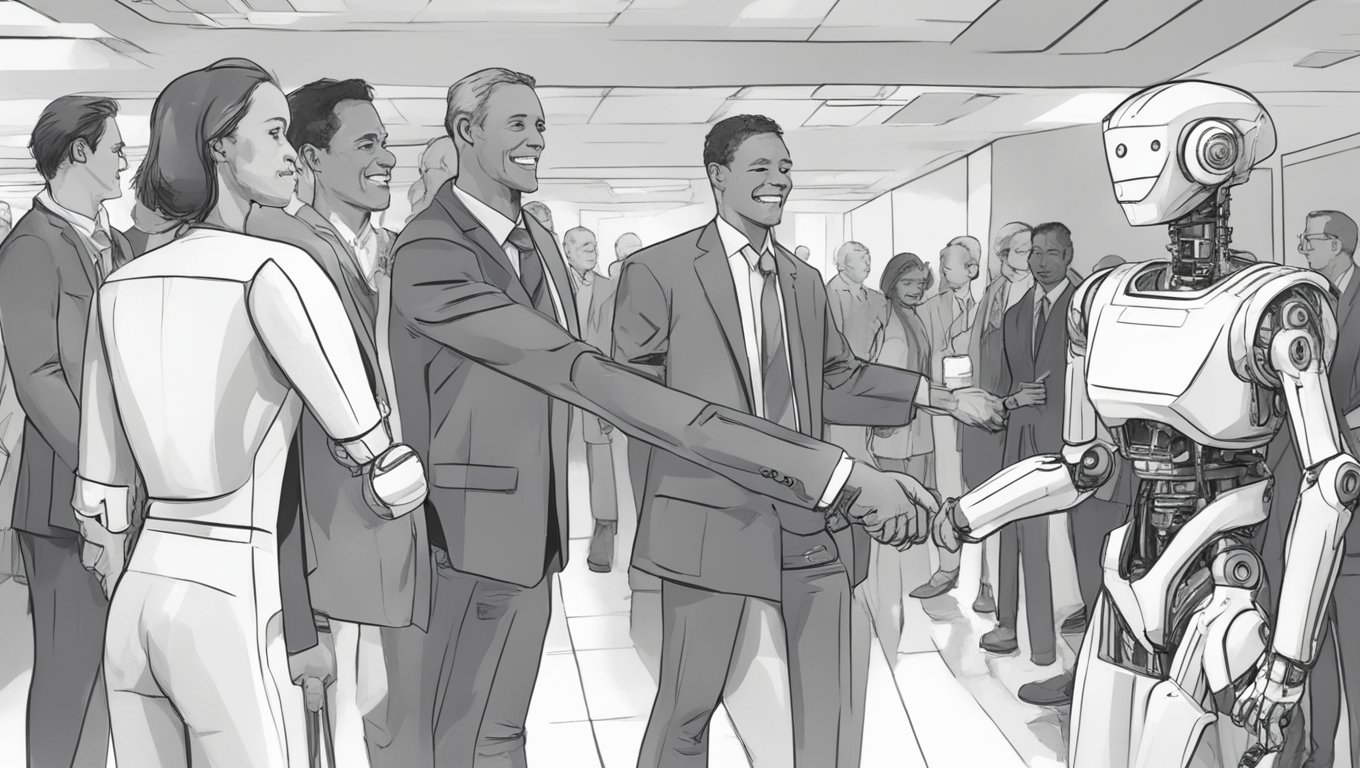Harnessing the Power of genAI: How It Can Solve Job Market Skill Shortages
In a world where businesses are grappling with a shortage of skilled workers, a new study by Kaspersky Research suggests that generative artificial intelligence (genAI) may hold the key to overcoming this challenge. The study, which surveyed 2,000 C-level executives, revealed that 40% of respondents plan to use genAI tools, such as ChatGPT, to automate tasks and bridge critical skills gaps.
According to the study, genAI has emerged as a hot topic among senior executives, with 95% of respondents regularly discussing ways to maximize its value. However, despite this interest, a whopping 91% admitted that they don’t fully understand how genAI works. David Emm, Kaspersky’s principal security researcher, emphasized the importance of senior management developing a deeper understanding of the data management processes involved in training these systems.
One of the primary attractions of genAI for senior bosses is its ability to offer a significantly lower barrier compared to finding new workers. Kaspersky’s study found that over a quarter of surveyed leaders considered genAI to be a passing fad. However, despite this skepticism, 49% believed that employees are already automating everyday tasks using genAI.
While genAI holds the promise of clear business benefits, Kaspersky Research highlights the need for education and collaboration with cybersecurity and risk experts to ensure its safe and secure implementation. The study also brings attention to the hurdles faced by organizations in adopting AI, such as high costs and potential exposure of sensitive corporate data to unfamiliar automation technology.
Despite concerns surrounding job displacement, genAI is projected to influence 4.5 times more jobs than it replaces, according to Forrester Research’s Generative AI Jobs Impact Forecast for 2023. The research estimates that genAI will replace 90,000 jobs this year, growing to 2.4 million by 2030. However, Forrester emphasizes that job losses will remain modest until certain challenges, such as intellectual property rights and model bias, are addressed.
The fear of job loss to automation is palpable among global workers. Forrester found that 36% of employed workers worry about losing their jobs to automation within the next 10 years. The increase in job postings mentioning “genAI” terms or skills over the past year highlights the demand for employees with specific genAI-related skills.
While the long-term effects of genAI remain to be seen, its impact on the job market cannot be ignored. Historically, technological advancements have created new occupations, with up to 60% of today’s workers employed in jobs that did not exist in 1940. Goldman Sachs estimates the total addressable market for generative AI software to be $150 billion, compared to $685 billion for the global software industry, indicating significant growth potential.
The potential of genAI in the software development realm is already evident. Tools like ChatGPT have proven successful in aiding developers in code creation, improving productivity and efficiency. Microsoft’s GitHub Copilot, powered by ChatGPT, is anticipated to assist in coding 80% of all code checked into GitHub within the next five years.
Cisco’s experience with genAI further exemplifies its transformative power. The company now sees AI as a foundational infrastructure, using it to drive productivity enhancements and automate tasks such as help desk functions. Externally, Cisco aims to integrate AI into every product portfolio, revolutionizing its digital IT management.
In conclusion, genAI presents an opportunity to address the skill shortages prevalent in today’s job market. Despite the reservations and challenges associated with its adoption, the potential benefits of genAI are significant. With the right understanding, education, and collaboration, businesses can harness the power of genAI to bridge critical skills gaps, enhance productivity, and reshape the future of work.





Use the share button below if you liked it.